Filter by
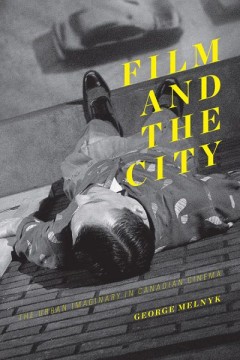
Film and the City the Urban Imaginary in Canadian Cinema
Examining fourteen Canadian films produced from 1989 to 2007, including Denys Arcand’s Jésus de Montréal (1989), Jean-Claude Lauzon’s Léolo (1992), Mina Shum’s Double Happiness (1994), Clément Virgo’s Rude (1995), and Guy Maddin’s My Winnipeg (2007), Film and the City is the first comprehensive study of Canadian film and “urbanity”—the totality of urban culture and life. Dra…
- Edition
- -
- ISBN/ISSN
- 9781927356593.01
- Collation
- -
- Series Title
- -
- Call Number
- 319 pages
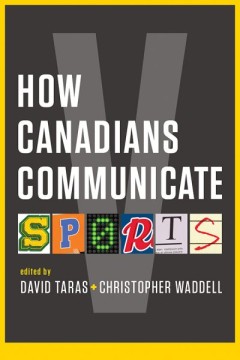
How Canadians Communicate V Sports
Fewer Canadians than ever are lacing up skates, swimming lengths at the pool, practicing their curve ball, and experiencing the thrill of competition. However, despite a decline in active participation, Canadians spend enormous amounts of time and money on sports, as fans and followers of sporting events and sports culture. Never has media coverage of sports been more exhaustive, and never has …
- Edition
- David Taras and Christopher Waddell
- ISBN/ISSN
- 9781771990073.01
- Collation
- -
- Series Title
- -
- Call Number
- 395 pages
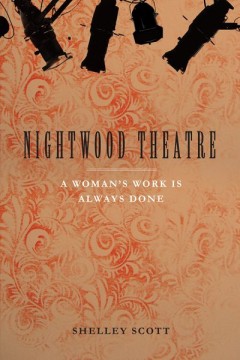
Nightwood Theatre A Woman’s Work Is Always Done
In Nightwood Theatre, Scott describes the company’s journey toward defining itself as a feminist theatre establishment, highlighting its artistic leadership based on its relevance to diverse communities of women. She also traces Nightwood’s relationship with the media and places the theatre in an international context by comparing its history to that of like companies in the U.K. and the U.S.
- Edition
- -
- ISBN/ISSN
- 9781897425558.01
- Collation
- -
- Series Title
- Canadian Plays
- Call Number
- 344 pages
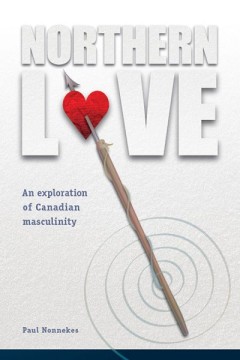
Northern Love An Exploration of Canadian Masculinity
In Northern Love, Paul Nonnekes proposes a conception of love suggestive of a distinctive model of Canadian masclinity. He pursues debates in psychoanalysis and cultural theory in relation to two representative male characters in novels by Rudy Wiebe (A Discovery of Strangers) and Robert Kroetsch (The Man from the Creek).
- Edition
- -
- ISBN/ISSN
- 9781897425220.01
- Collation
- -
- Series Title
- Cultural Dialectics
- Call Number
- 145 pages
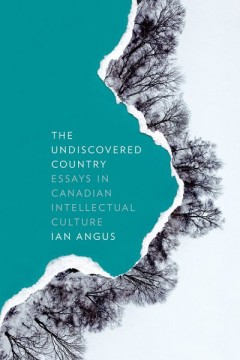
The Undiscovered Country Essays in Canadian Intellectual Culture
In this sequence of essays, Ian Angus engages with themes of identity, power, and the nation as they emerge in contemporary English Canadian philosophical thought, seeking to prepare the groundwork for a critical theory of neoliberal globalization. The essays are organized into three parts. The opening part offers a nuanced critique of the Hegelian confidence and progressivism that has come to …
- Edition
- -
- ISBN/ISSN
- 9781927356326.01
- Collation
- -
- Series Title
- -
- Call Number
- 306 pages

To Know Our Many Selves From the Study of Canada to Canadian Studies
To Know Our Many Selves profiles the history of Canadian Studies, which began as early as the 1840s with the Study of Canada. Professor Dirk Hoerder discusses this comprehensive examination of culture by highlighting its unique interdisciplinary approach, which included both sociological and political angles. Years later, as the study of other ethnicities was added to the cultural story of Cana…
- Edition
- -
- ISBN/ISSN
- 9781897425725.01
- Collation
- -
- Series Title
- -
- Call Number
- 450 pages
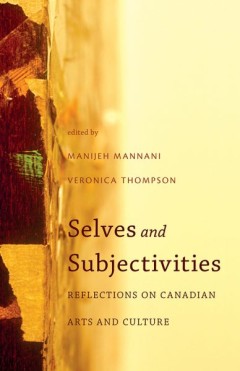
Selves and Subjectivities Reflections on Canadian Arts and Culture
Long a topic of intricate political and social debate, Canadian identity has come to be understood as fragmented, amorphous, and unstable, a multifaceted and contested space only tenuously linked to traditional concepts of the nation. As Canadians, we are endlessly defining ourselves, seeking to locate our sense of self in relation to some Other. By examining how writers and performers have con…
- Edition
- -
- ISBN/ISSN
- 9781926836492.01
- Collation
- -
- Series Title
- -
- Call Number
- 275 pages
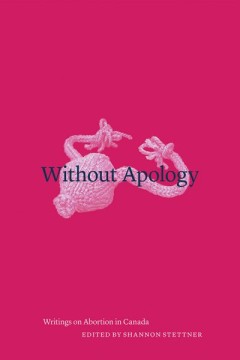
Without Apology
Without Apology seeks to address this issue by gathering the voices of activists, feminists, and scholars as well as abortion providers and clinic support staff alongside the stories of women whose experience with abortion is more personal. With the particular aim of moving beyond the polarizing rhetoric that has characterized the issue of abortion and reproductive justice for so long, Without …
- Edition
- -
- ISBN/ISSN
- 9781771991599.01
- Collation
- -
- Series Title
- -
- Call Number
- 366 pages
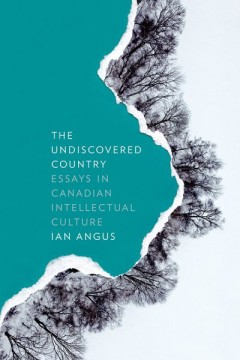
The Undiscovered Country Essays in Canadian Intellectual Culture
In this sequence of essays, Ian Angus engages with themes of identity, power, and the nation as they emerge in contemporary English Canadian philosophical thought, seeking to prepare the groundwork for a critical theory of neoliberal globalization. The essays are organized into three parts. The opening part offers a nuanced critique of the Hegelian confidence and progressivism that has come to …
- Edition
- -
- ISBN/ISSN
- 9781927356326.01
- Collation
- -
- Series Title
- Cultural Dialectics
- Call Number
- 306 pages

To Know Our Many Selves From the Study of Canada to Canadian Studies
To Know Our Many Selves profiles the history of Canadian Studies, which began as early as the 1840s with the Study of Canada. Professor Dirk Hoerder discusses this comprehensive examination of culture by highlighting its unique interdisciplinary approach, which included both sociological and political angles. Years later, as the study of other ethnicities was added to the cultural story of Cana…
- Edition
- -
- ISBN/ISSN
- 9781897425725.01
- Collation
- -
- Series Title
- -
- Call Number
- 450 pages
 Computer Science, Information & General Works
Computer Science, Information & General Works  Philosophy & Psychology
Philosophy & Psychology  Religion
Religion  Social Sciences
Social Sciences  Language
Language  Pure Science
Pure Science  Applied Sciences
Applied Sciences  Art & Recreation
Art & Recreation  Literature
Literature  History & Geography
History & Geography